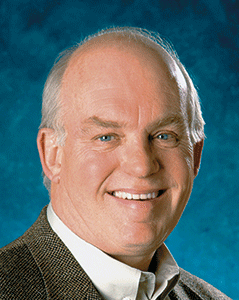
Robert Wilton has lots of friends. As an accomplished landscape business owner, making connections comes easy. But one person that Wilton, who is now president of Clintar Landscape Management in Markham, Ontario, learned was not his friend was his banker. It’s a lesson he had to learn the hard way in his earlier years of business.
After almost a decade of smooth sailing with his bank, Wilton was unprepared when they decided to call him on his mid-six-figures loan. Wilton says that banks often view the landscape industry as having a lot of risk exposure, which is why he suspects it was called. Looking back, he says it was a big mistake believing his banker was his friend. That allowed him to forget the fact that he could be asked to pay back his loan at any given moment. “When they asked for their money back, I didn’t have the money to give them,” remembers Wilton. “So it was a very scary time.”
After almost six months of sleepless nights spent trying to figure out where he could get the money, Wilton was fortunate enough to find some “angel capital” through a family friend. “It was definitely a high risk loan for that friend, but I paid it back,” says Wilton. “And today I don’t owe the banks any money.”
Wilton says that the experience taught him a few key lessons that will ensure he’s never in that position again.
Banks Don’t Like Risk
“Banks are not there to finance start-up businesses,” advises Wilton. “They are there to carefully loan money based upon a guarantee of security. They don’t want risk. It’s not venture capitalism—it’s money that’s coming as a result of providing sufficient security.”
Wilton says it’s a common mistake to assume you can count on a bank for any needed cash but he warns that getting a loan is not like using an ATM. Be prepared to show the bank why they’re not taking a huge risk with you.
Keeping Records is Key
Keeping good records is something that Wilton says many in the industry ignore. But he says it’s at their peril. “Accurate and up-to-date accounting is absolutely vital,” says Wilton, who thinks his old “shoebox accounting methods” may have contributed to the bank’s decision to call him on his loan. “If you don’t understand your financials, find someone who does. I didn’t have good accounting records when this happened. Now I have the best ever. I hired a controller and gave her full authority to manage the cash. She cost me more than I ever wanted to pay but I’ve found now that she’s saved me a lifetime. We used to get overdraft charges regularly—now that would never happen.”
Be Honest
Wilton says it was his good communication with his suppliers that helped save the business after this mistake. “We did not make promises to our suppliers that were overdue,” admits Wilton. “We were just completely upfront with them and explained that our intent was to pay them but we could only pay a little bit at a time—even if it took a year or more. Because we were honest and kept those promises, many of those people are still our suppliers today. As simple as it sounds as a principle, honesty is incredibly huge when you’re in difficult times.”
Company Name: Clintar Landscape Management
Headquarters: Toronto, Canada
Number of Employees: 525
Service Breakdown: 30 percent maintenance; 20 percent landscape enhancements; 50 percent snow and ice control services
Client Breakdown: 95 percent commercial; 5 percent residential “estates”
Photo: Clintar Landscape Management
